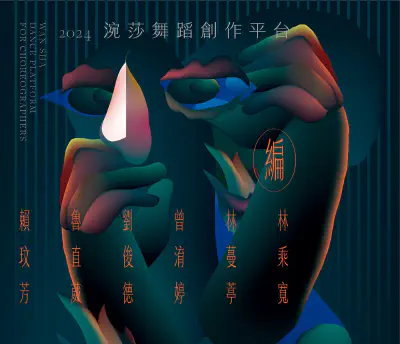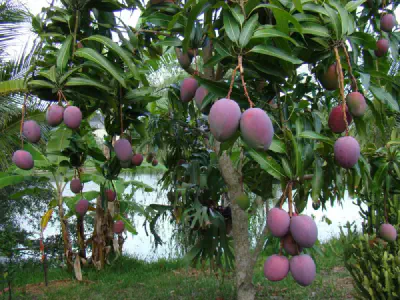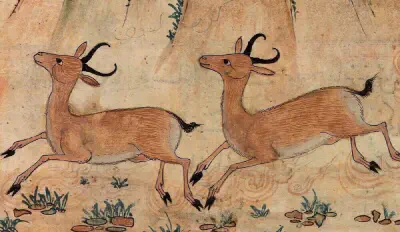Chronicles and Caterpillars
If there’s anything that we can predict with certainty about the course of history, it is that history is unpredictable. This is an insight that was central to the thought of the Chinese philosopher Dong Zhongshu (董仲舒).
Dong was born some time around 198 BCE in Guangchuan, now in present-day Hebei. What we know about his life comes from a couple of sources. First, a few scrappy references in the Shiji (史記) or Records of the Grand Historian, by the historian Sima Qian (司馬遷). And second, the longer account of his life in the Han Shu (漢書) by the scholar Ban Gu (班固).
Dong Zhongshu was a thinker with broad intellectual interests, and a determinedly synthesising sensibility. He drew together Confucianism, yin and yang theory, an interest in politics, and an abiding concern with history. And when it came to history, what fascinated him most was the sheer oddness of how history unfolds, the unpredictable, uncertain nature of events.
From an early age, Dong was fascinated by the Chunqiu (春秋), or Spring and Autumn Annals, a chronicle of the state of Lu. The Chunqiu sets out, with incredible compression, the history of Lu from the year 722 BCE to the year 481 BCE. It is made up of the briefest of annotations, on average, no more than ten characters long. For example, here is the section recording a series of events in 688 BCE.
In summer, in the sixth month, Shuo, the Prince of Wei, entered Wei. In autumn, our lord arrived from the attack on Wei. There was an infestation of caterpillars. [1]
This is typical for the Chunqiu: brief notes about who is attacking whom, what the harvest is doing, and unexpected events.
This laconic chronicle was the basis for a number of more extended commentaries, the most famous of which is the Zuozhuan, the largest extant text from pre-imperial China.

Dong Zhongshu was deeply familiar with the Chunqiu and its commentaries, and his scholarship was widely admired. His reputation as a scholar led to his appointment as an academician. And he was almost the archetypical bookworm: Sima Qian tells us that for a period of three years, he was so wrapped up in his work that nobody ever even saw him venture out into the garden.
When the emperor Wudi came to the throne, Dong was appointed Chancellor of the kingdom of Jiangdu. According to Ban Gu, Dong was a successful advisor who “never failed to get the results for which he hoped.” [2] But things soon turned sour in the palace. Dong Zhongshu was dismissed from his post – it is not clear why – and demoted to Palace Counsellor.
After his demotion, he doubled down on his study of unexpected and anomalous events. This enthusiasm for anomalies was almost his undoing. During his time as Palace Counsellor, fires broke out in a shrine dedicated to Gaozu, the founder of the Han dynasty. Dong Zhongshu, being the scholar he was, jotted down notes on these unexpected happenings. Shortly afterwards, his rival Zhufu Yan (主父偃) found the notes and took them to Wudi. The emperor consulted a number of scholars and officials, and Dong Zhongshu fell under suspicion of disloyalty. These were, after all, deeply inauspicious events – so what was Dong Zhongshu doing scribbling secretive little notes about them? He was sentenced to death by a committee of scholar-officials, only to be reprieved by the emperor.
Unsurprisingly, this put Dong off both politics and his enthusiasm for writing about the strange and unexpected. After his fall from grace, he was offered a position as advisor to Liu Duan, the king of Jiaoxi and the elder brother of emperor Wudi. Liu was known for his dissolute ways of life, and his fondness for arbitrarily executing his officials. Dong feigned illness and refused the post. He spent the rest of his days at home, occasionally taking visitors from the court seeking his advice, but keeping the world of politics at arm’s length. He died in old age, some time around the year 107 BCE. [3]
The Call of the Weird
Dong’s abiding obsession with the role that anomalous, chance and unexpected events played in human life owed a lot to the Chunqiu. The Spring and Autumn Annals paid particular attention to omens, portents, and anomalies. Here, for example, is a section recording events in 644 BCE, where there are some inauspicious omens sighted in the skies above the city.
In the sixteenth year, in spring, in the royal first month, on the wushen day, the first day of the month, stones fell from the sky in Song, five in number. This same month, six fishhawks flew backward across the Song capital. [4]

Dong was fascinated by these accounts. What could we take from anomalous events? How could we understand them? Things like hawks flying backwards (no doubt due to high winds) are only more obvious examples of the more general truth that history is made up of one unexpected event after another. And part of the fascination of the Chunqiu for Dong Zhongshu was the way it made clear the sheer oddness of history, the way that another natural disaster or unanticipated happening always lurks just around the corner.
For Dong Zhongshu, this meant that one of the crucial arts of government was seeking to understand, as best one could, the deeper patterns underlying apparently anomalous events. Dong’s hunch was this: if we can embrace and understand this weirdness and unpredictability, then we might have some chance of offsetting its harms, and taking advantage of the changeability of things.
The Disorder of the World
Dong also took from the Zuozhuan the idea that disasters and anomalies were signs that the world was fundamentally disordered. But the Zuozhuan also suggested that the ultimate source of this disorder was a social. Dong took seriously the claim made in the Zuozhuan that events like fishhawks flying backward (because of high winds) and stones falling from the sky, were,
matters of yin and yang and not matters in which one can locate the auspicious or the inauspicious. Auspiciousness and inauspiciousness arise from human beings. [5]
Put otherwise, the world is a chaotic place because of the way that we intervene in the world. Bad government has a habit of throwing things out of sync. And so when anomalies occur, Dong argued, they remind us that the world stands in need of some remedial action. Events such as these can act as a call to begin working on reordering the world, by restoring a more just and judicious system of government. In the Chunqiu fanlu (春秋繁露), or Luxuriant Gems of the Spring and Autumn, attributed to Dong Zhongshu, it says:
Heaven conveys its warning to decadent polities by way of disasters in the hope that those who manage them will reform their ways and with the intention that those regimes will be saved from destruction thanks to the encouragement of learning and of the right sort of action. [6]
Bad government and black swans
This raises the question: what is the right sort of action? Here, Dong drew upon yin-yang theory, but gave this theory a moral slant. He associated yang with virtue (de 德), and with life, “as seen at the height of summer.” Meanwhile, he associated yin with punishment (xing 刑) and with the closure or ending of life, “as seen in the depths of winter.” This led him to argue that effective rule should be rooted not in punishment, but instead in virtuous acts that contributed to the flourishing of life.
Here, it is interesting to ask whether Dong’s view has any merit. It is clear that he overstates the case for human agency. Not everything that happens is our fault. At the same time, he understates the extent to which the world is genuinely anomalous, and unexpectedness is simply the way of things. Even with an ideal political and social order, we would not escape this unpredictability.
Nevertheless, there are also genuine insights here. The first is that we can understand a lot about the world by reflecting on the fact that history is far more unpredictable, far more made up of anomalies and chance events, than we might hope. Dong would no doubt agree with Nassim Nicholas Taleb when he argues that to understand history, we need to get to grips with so-called “black swans”, improbable events with enormous consequences.
The other insight is that the knock-on effects of unvirtuous government may be both wide-ranging and unexpected. Droughts, fires, floods may seem like natural disasters; but many of these things may also have their roots, at least in part, in human agency. Bad government can amplify the bad effects of living in a world that is never wholly predictable. Good government can diminish these bad effects.
And here Dong Zhongshu might offer us a challenge, as we face our current climate disaster: the challenge of asking what it might mean to rule in a way that contributes to life’s flourishing.
Notes
[1] Stephen Durrant, Wai-yee Li and David Schaberg (translators), Zuo Tradition Zuozhuan: Commentary on the “Spring and Autumn Annals” (University of Washington Press 2016) p. 147
[2] Michael Loewe, Dong Zhongshu, a ‘Confucian’ Heritage and the Chunqiu Fanlu (Brill 2011), p. 48.
[3] ibid. p. 50
[4] Durrant et al., Zuo Tradition Zuozhuan, p. 331
[5] ibid. p. 331
[6] Sarah A. Queen and John S. Major (translators), Luxuriant Gems of the Spring and Autumn (Columbia University Press 2016), p. 89



